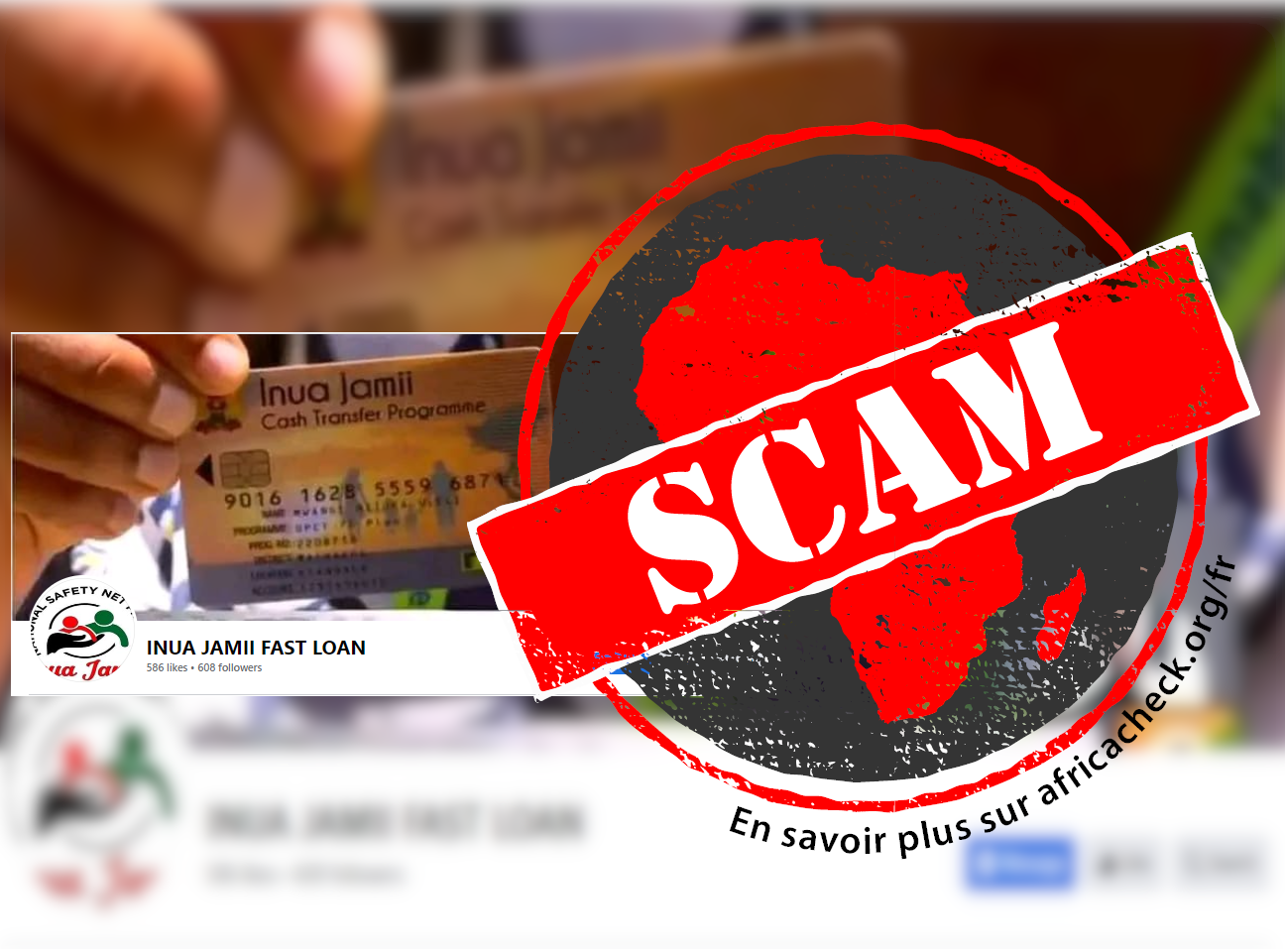IN SHORT: The Kenyan government programme Inua Jamii is frequently imitated in Facebook scams that target the vulnerable. This Facebook page is another imposter and its posts should be ignored.
The Facebook page INUA JAMII FAST LOAN claims to be offering loans to Facebook users.
The page uses the name and logo of Inua Jamii, the Kenyan government programme that gives cash grants to poor and vulnerable people. “Inua Jamii” is Kiswahili for “uplift the community”.
One of the page’s posts, dated 13 April 2023, reads: “INUA JAMII SOFT LOANS: SMS the word #Loan to 0759 092480 or Whatsapp and get instant loan from INUA JAMII LOANS starting from ksh.10000/ to ksh.500,000/ at 0% interest rate payable in 30 months plus a grace period of 3 months.”
Other posts on the page advertise loans for business or personal use, school fees and emergencies.
The page has advertised the loan offers on many Facebook groups, and been reposted dozens of times.
But is the Facebook page and its loan offers legit? We checked.

Fake Facebook page
There are several clues the Facebook page and its offers are fake.
The Inua Jamii programme does not issue loans but rather gives out cash grants. So no loan offers are posted on the programme’s official Facebook page.
While the page transparency section of the official Facebook page shows it was created in June 2017, the Facebook page with the loan offers was only created on 26 December 2022. It is unlikely for the government to run two Facebook pages for the same programme and offer different services on each.
We reached out to the cellphone number listed in the ads to ask about the loans and were told to deposit a registration fee of KSh770 first. This is a clear indication that this is a scam page.
To help protect yourself against online fraudsters, see Africa Check’s guide to Facebook scams and how to spot them.
Republish our content for free
For publishers: what to do if your post is rated false
A fact-checker has rated your Facebook or Instagram post as “false”, “altered”, “partly false” or “missing context”. This could have serious consequences. What do you do?
Click on our guide for the steps you should follow.
Publishers guideAfrica Check teams up with Facebook
Africa Check is a partner in Meta's third-party fact-checking programme to help stop the spread of false information on social media.
The content we rate as “false” will be downgraded on Facebook and Instagram. This means fewer people will see it.
You can also help identify false information on Facebook. This guide explains how.




Add new comment